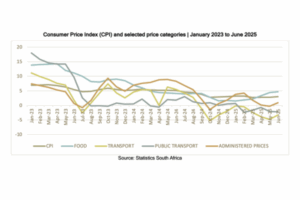The report Location-Based Platform Work in South Africa – Mapping the prospects for organising looks at gig work, focusing specifically on location-based platform work. This category includes jobs that require a worker to be in a certain place, offering a specific service, at an exact time, such as ride-hailing and delivery services. The report provides a comprehensive review of international and national literature, alongside surveys from 22 Uber drivers in Cape Town, East London, Gqeberha, and Johannesburg.
Key highlights include:
- Defining gig work: The term ‘gig work’ predates the digital revolution and describes short-term work done outside of a formal employer-employee relationship. The Location-Based Platform Work in South Africa report focuses on the ‘platform worker’, a category of worker that is a product of the digitisation of the service economy.
- Sector growth: By 2019, South Africa hosted about 150 digital platforms, with 90 engaged in location-based work. The Fairwork Project estimated 30,000 gig workers in South Africa by 2020, growing 10% annually.
- Market penetration: Digital labour platforms are prominent in ride-hailing, delivery, and domestic work sectors, with platforms like Uber and SweepSouth expanding their services.
- Transport sector: The minibus taxi industry dominates the public passenger transport sector, accounting for 63% of the market in South Africa. Ride-hailing services are a growing segment within this landscape.
Key focus
- Market dynamics: main players in the platform economy, the platform value chain, and the effects of the COVID-19 pandemic on gig work.
Worker profiles: the demographics, motivations, working conditions, and incomes of gig workers in South Africa. - Regulatory environment: the current legal and regulatory framework governing gig work in South Africa, and how it compares to global standards.
- Organising prospects: the prospects for organising gig workers, the role of trade unions, and potential strategies for improving worker rights and conditions.
Report (PDF): Location-Based Platform Work in South Africa – Mapping the prospects for organising
Related article:
Trade unions and the new economy: How workers are recasting their power in the digital age







